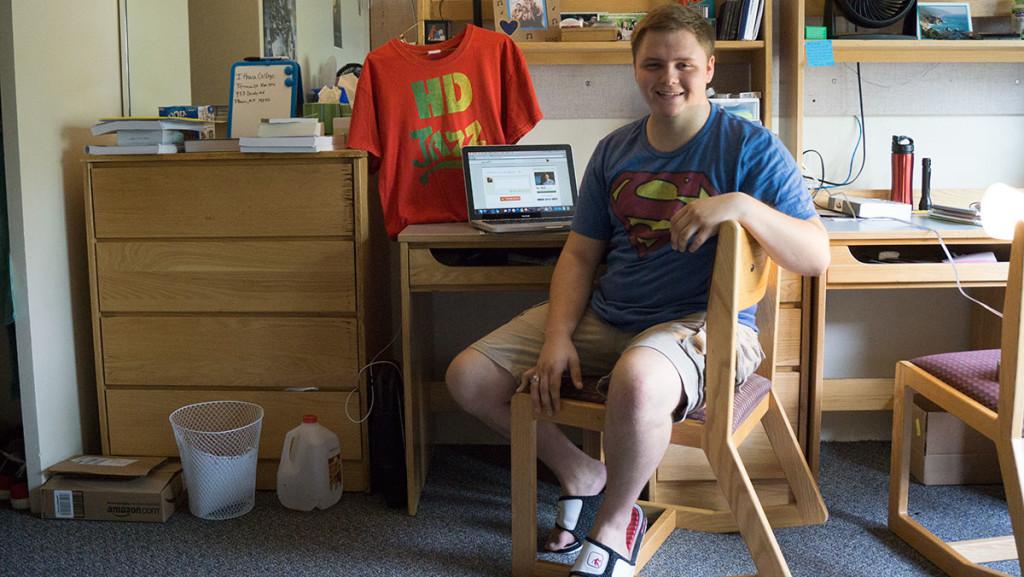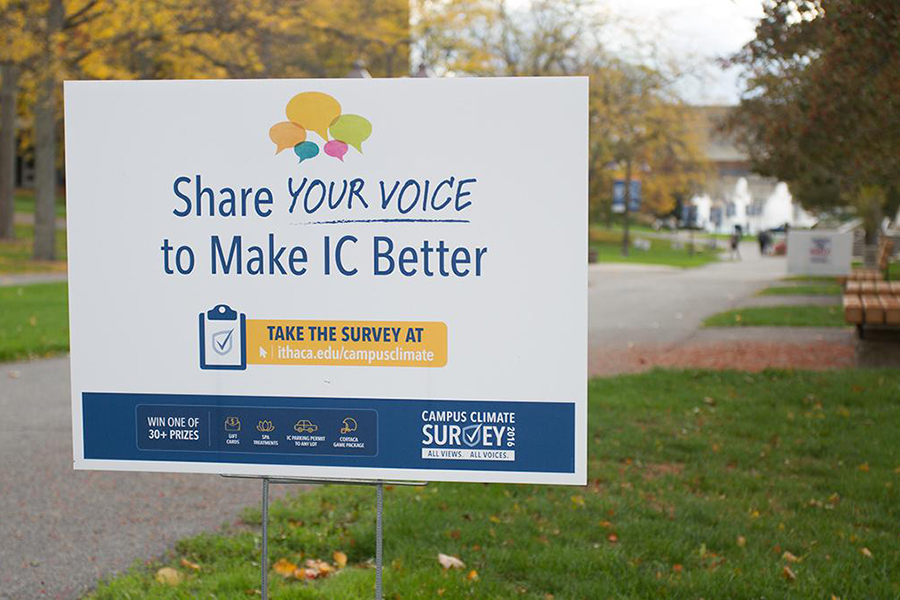Related: Ithaca College attempting to make college more affordable
Ithaca College students pay for education without parents’ help
Over the past 30 years, college tuition prices at private four-year institutions have increased by 146 percent, according to the College Board. As costs rise, students are looking for new ways to pay.
Ithaca College freshman David Morris partially paid for his tuition with money he raised through GoFundMe, a crowdfunding website.
Through his GoFundMe page and a local fundraiser that featured live performances, a 50/50 drawing and an auction, Morris said he was able to raise $13,150. In addition, he said he received $19,575 in grants and scholarships from the college and $1,575 from outside scholarships.
This use of fundraising college tuition is becoming more popular, Sandip Sekhon, CEO and founder of GoGetFunding, a site that allows users to fundraise online, said. He said educational fundraisers are GoGetFunding’s third most popular type of fundraiser, after medical costs and personal events.
“I think it’s amazing, and I think it’s only going to increase,” Sekhon said. “As social media becomes more and more of an integral part of everyone’s lives and it becomes easier to spread the message with people that might be interested, I think this trend is only going to increase.”
Morris, a music education major, was determined to attend the college. He said his home life forced him to find other ways to pay for tuition. He said he lived with his grandmother because his mother lost her apartment and moved, with Morris’ five siblings, to his aunt’s house. He chose to live with his grandmother to care for her and because his siblings bullied him at home.
“I really wanted to go to college, and I was not giving up on this dream,” Morris said. “I was always willing to do things and be nice to people and help out any way I could, and I think doing that will repay. It gave me a whole new horizon to look at.”
Morris worked on raising tuition money with his high school music teacher Deb Large ’79, who he said played a major role in getting him to college.
“Her and I have a really strong connection,” he said. “I didn’t really have anyone to go through my financial process with. She helped me out a lot. She believes in me.”
Reaching out to friends and family, as Morris did, is key in fundraising for college tuition, Sekhon said.
“Some people think that they can create a campaign on a crowdfunding website and donations will just pour in, but strangers, in the first instance at least, don’t always contribute,” Sekhon said. “What is critical to a student’s strategy is that they first share their campaign with their friends and family to give it the initial credibility.”
Once a foundation is built, the fundraiser may begin receiving donations from others, Sekhon said. He attributes this act to the positive way donors feel after giving.
“I would say 40 to 50 percent of the time you do get strangers and extended networks,” Sekhon said. “The main reason for that is because [of] the personal satisfaction of giving. Giving can be hugely rewarding, so when someone does give, they feel like they’ve taken a step to improving the person’s life.”
The college is aware of the difficulties students and their families face when paying tuition, Lisa Hoskey, director of Student Financial Services, said. She said the financial services office is able to provide financial aid to students and their families with donations from alumni and others.
“Each year we evaluate our financial aid policies and typically increase institutional financial aid for students who qualify,” she said. “We work with families to determine eligibility for state and federal grants, loans and work study. Additionally, we help families develop plans to meet the cost of attendance.”
College tuition is a prominent issue for many students across the country, which is evident in the number of tuition fundraisers Sekhon said he sees on GoGetFunding. When it was first launched, GoGetFunding was a collaborative-based site, similar to Kickstarter, he said. As the need for more personal fundraisers increased, Sekhon said the company switched over to fully accommodate these funds. With this new trend, GoGetFunding is adjusting its priorities to focus more on educational fundraisers.
“We know that a lot of students aren’t aware of the opportunities that crowdfunding presents them, so that is something that we’re moving into more actively,” he said. “Because this is becoming a larger category, we’re now starting to place more effort on it and making people aware that fundraising is an option.”
Hoskey pointed out a potential flaw in the tuition crowdfunding phenomenon. She said it can potentially backfire and create more financial problems for the student down the road.
“Funds raised this way may be taxable income for the student and, depending on how much is raised, could affect eligibility for need-based aid the following year,” Hoskey said. “For legal reasons and because institutions want to protect the privacy of families, colleges cannot verify information that individuals post online, so there is opportunity for misrepresentation.”
Morris has planned ahead for his next few years at the college. He said he hopes to become a resident assistant all three years, eliminating the cost of room and board.
Morris said he aspires to become a high school music teacher, like the one that inspired him to attend college. Even after his fight to attend undergraduate school, Morris said he is not discouraged and plans to try for an educational leadership degree at Saint Joseph’s University.
Sekhon has received positive feedback from students who have used GoGetFunding for educational purposes. He said this feedback has shown him the importance of his and other crowdfunding sites.
“One theme that’s consistent throughout is that they say: ‘Without being able to fundraise for the cost … I would not be able to make it happen,’ and I think that’s the most powerful element of crowdfunding,” Sekhon said.







